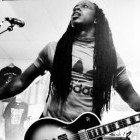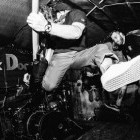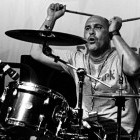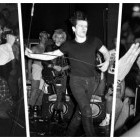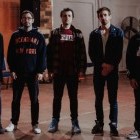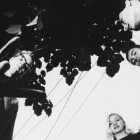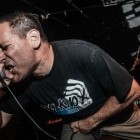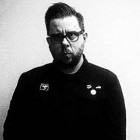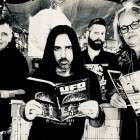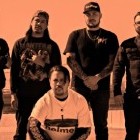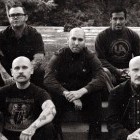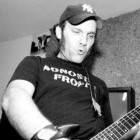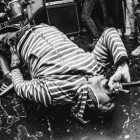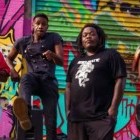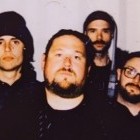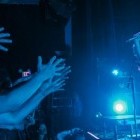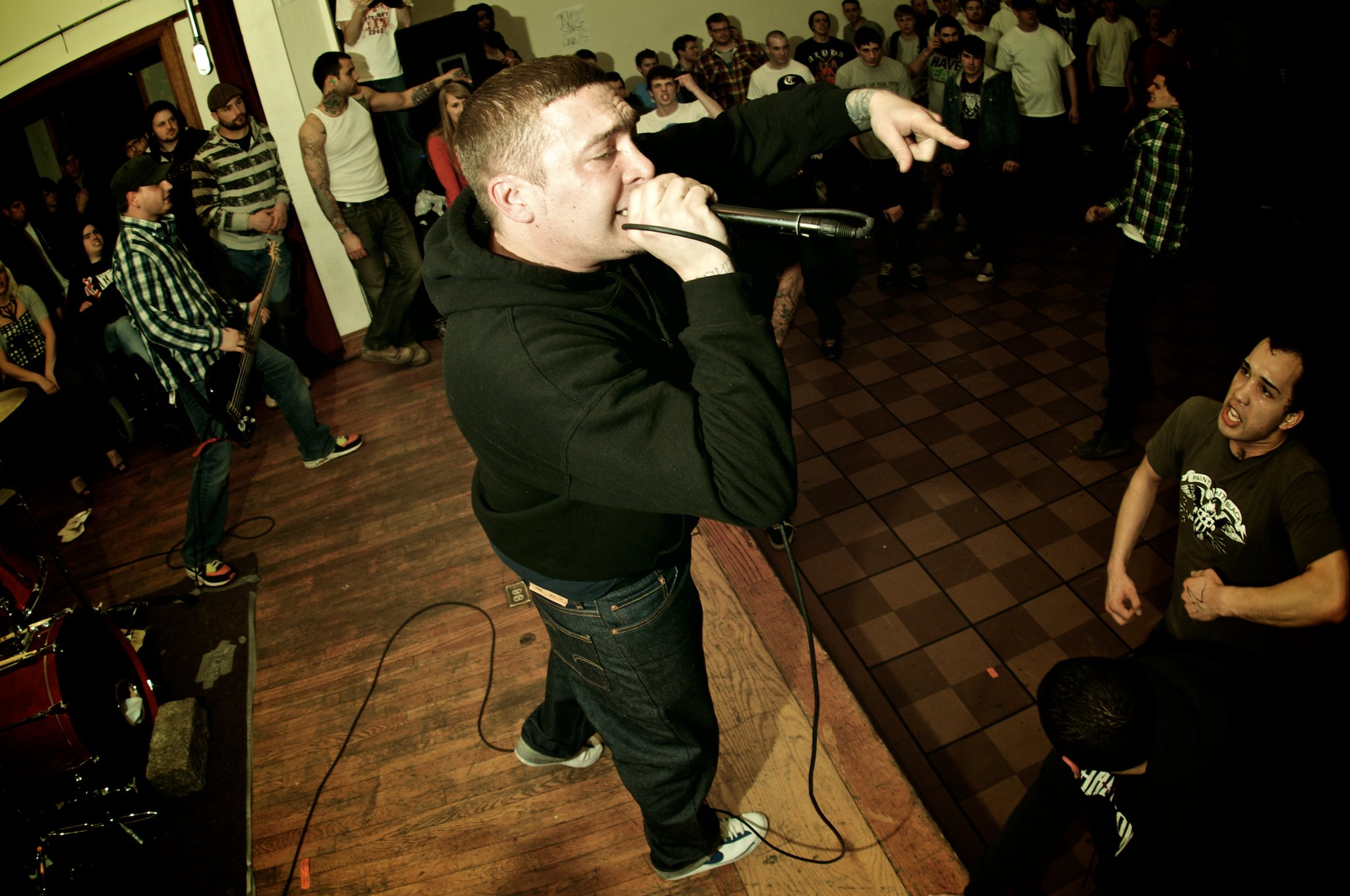
As part of No Echo's 2000s Hardcore Week, I wanted to include a personal favorite from that decade: Death Threat.
Along with Hatebreed and 100 Demons, the band put Connecticut Hardcore on the map in a big way throughout the '90s and '00s. Death Threat's 2000 debut album, Peace & Security, consistently gets mentioned whenever someone talks about the best releases from that era. If you've heard it before, you know why.
I thought it would be interesting to talk with Death Threat vocalist Aaron "Knuckles" Butkus about the group's discography. He also said I should reach out to OG drummer Jamie "Pushbutton" Muckinhaupt (also of Hatebreed) since he was back in the band and could offer some additional insight.
P.S. Since Aaron is the owner of a pizzeria in upstate New York called Tommy B's Slice Shop, I also snuck in a pizza-related question. Cheers!
Before we get into Death Threat, how would you describe the Connecticut hardcore scene of the late ‘90s that you guys came out of?
(Aaron "Knuckles" Butkus, vocals): Connecticut was great in the late '90s. There was a mix of metal, hardcore, and Youth Crew bands making noise, Groundzero and Fastbreak to name a few.100 Demons put their demo out the same spring we released the Last Dayz EP, so a lot was brewing in CTHC that year.
Jamie "Pushbutton" Muckinhaupt: The Connecticut scene during that time had a lot of different sounding bands. Obviously 100 Demons and Hatebreed, but also great bands like Groundzero, Sum of All Fears, Dismay, Divided by Hate, and Voice of Reason that all had their own unique sound. The late '90s was a great era for moshers in Connecticut too, tons of style.
The violence from back then gets discussed a lot, but mostly that was either from venues being in the sketchiest spots or security somewhere not understanding what kind of show they had booked. The scene itself was unified but diverse.
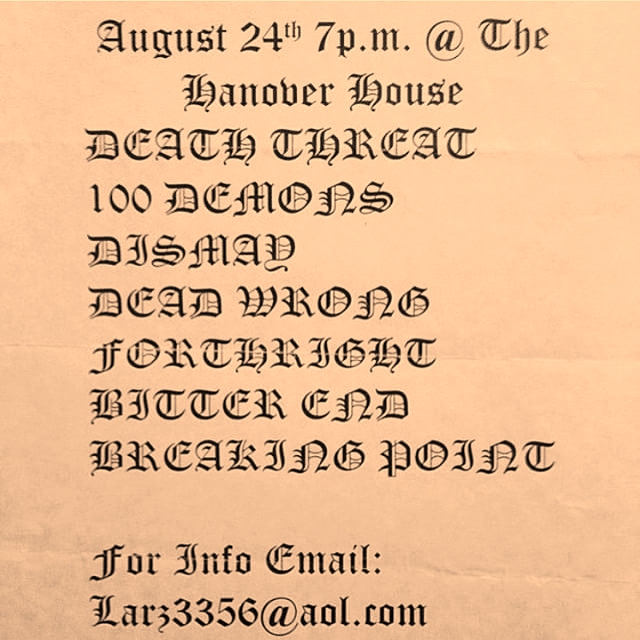
What were the goals of Death Threat when you guys first started the band? Did you think the long game, or were you expecting to release a demo, a couple of 7”s and then move on? The latter has always been so common in hardcore.
(Aaron): There were no goals when we started. We were just having fun with friends. I didn’t know what the fuck I was doing.
READ MORE: Dismay: ‘90s Connecticut Hardcore Band Discusses Their Time Together
Jamie, how did you come to join Death Threat? Did you grow up with the other guys, or did you meet through the hardcore community?
(Jamie): Boulder [guitarist Lou Richards] and Aaron were the ones who asked me about joining Death Threat. I have been friends with Aaron since I was about 16 from going to shows in Connecticut, and from him always coming to shows in Western Mass, where I'm from.
I had known the rest of the guys for quite a few years too just from going to shows in Connecticut and their past bands. And once I joined Hatebreed, I loved playing with Boulder and was in Connecticut all the time, so when they asked it was a no-brainer for me
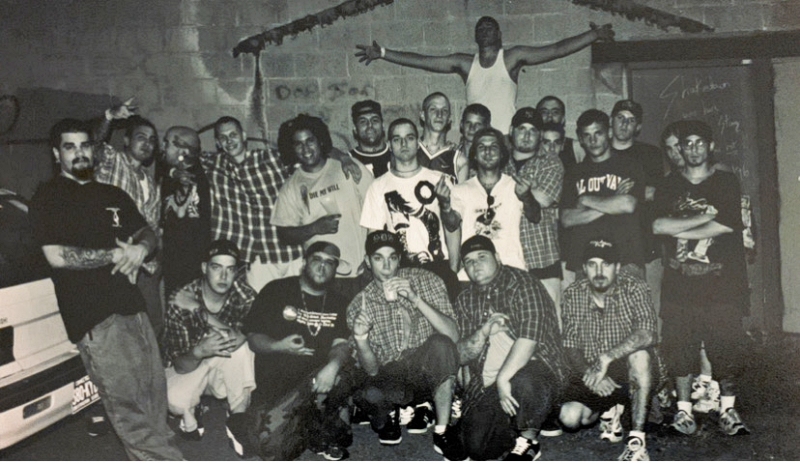
I remember the Last Dayz demo getting a lot of attention when it came out in 1998.
(Aaron): I was quite surprised, to be honest. I didn’t know how it would go over outside of Connecticut and our friends. It’s easier to get the support from a scene I had been a part since the late '80s but had no expectations otherwise. We were blown away and very thankful and honored to get the response we did
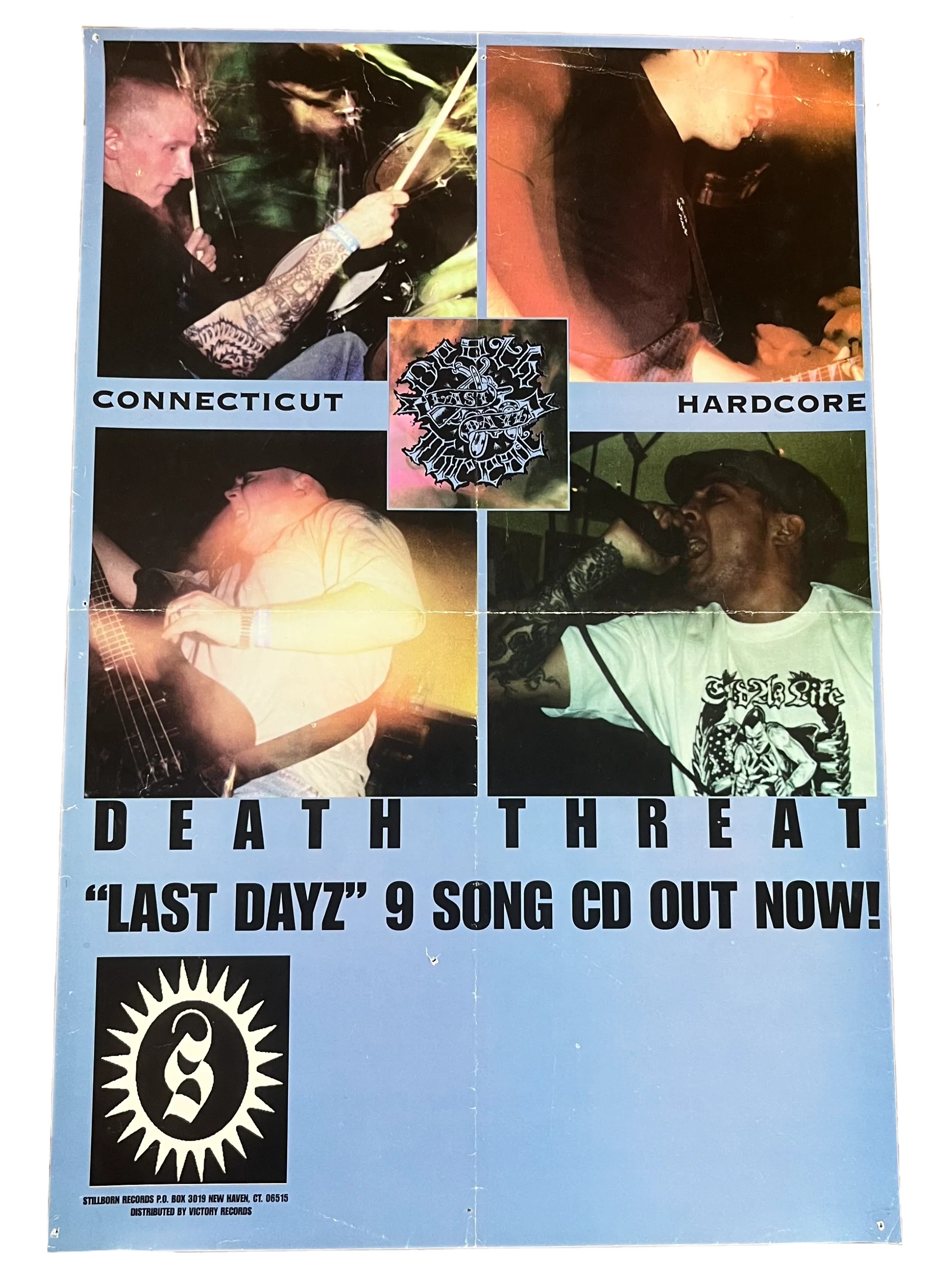
How did you land a deal with Fred Feldman at Triple Crown Records? Bridge Nine also got involved soon after.
(Aaron): Honestly, I don’t remember how we got the Triple Crown deal. The biz end of things was never my specialty, at that time. Realizing now I should have had [guitarist] CJ [Klemonski] on this interview he has a great memory for stuff like that and was a key player early on.
Triple Crown was good for us. They definitely got the name and our music out there. Chris Wrenn from Bridge Nine Records is an old CTHC kid and when he rereleased Peace & Security, it changed the game for Death Threat, opened up a whole new world for us. Working with Chris was one of the best decisions we made.
A lot of kids didn’t check us out because we were considered “tough guy” and came up playing with a lot of beatdown bands. Connecticut was a mix of everything and Death Threat really encompassed it all; just tough enough with fast parts, singalongs, and heavy Connecticut-style breakdowns. Again, none of this was planned, it was simply the natural culmination of our scene and influences.
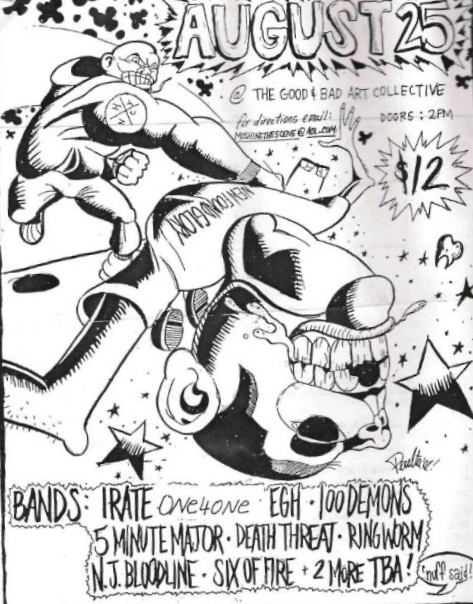
Going into writing the material that would encompass the Peace & Security album, did you have a specific lyrical theme/direction that you followed? Or was it more of a loosely connected collection of songs?
(Jamie): I don''t think as far as writing the music that we had a specific direction in mind other than to be even a little more metallic than the demo was. The first song we wrote music for was "Nowhere Fast," and I think that set the tone and syle of the record.
(Aaron): No plan really, just a scatter brain collection of thoughts and feelings. Religion played a big part in my life and felt I was brainwashed so there is a lot of apocalyptic themes and references throughout Death Threat's discography, from day one, with Last Dayz.
Friendship, love, betrayal, and addiction became part of the overall theme. Being transparent and honest was the only thing I committed to when writing lyrics for Death Threat. I didnt get wrapped up in what people would think or feel. I wanted to keep it real.
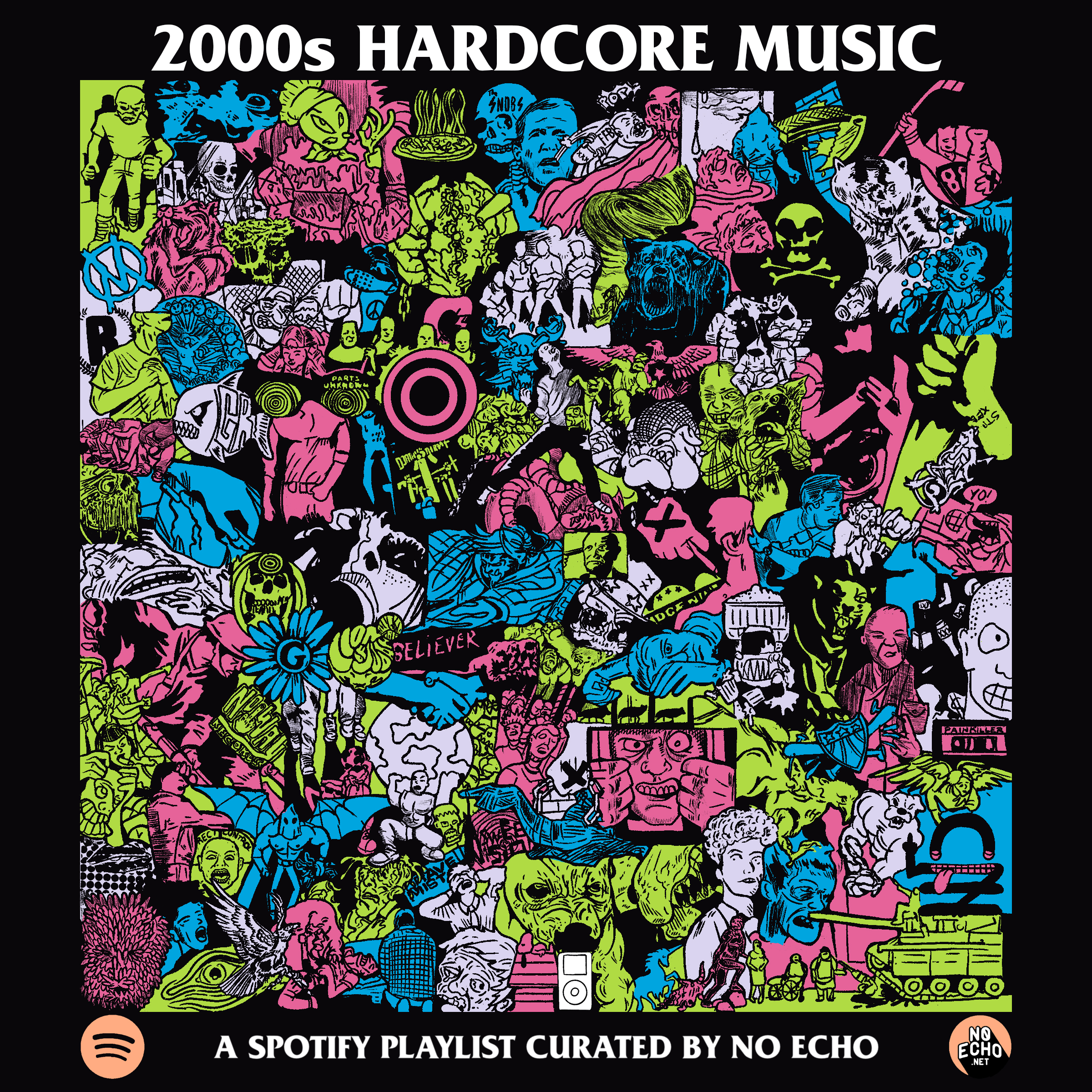
Did Triple Crown give you a decent budget to record the album? Why did you decide to work with Jim Siegel in the studio?
(Aaron): Jim Siegel had worked with some great bands, Blood For Blood to be specific. I believe [Blood for Blood bassist] Ian McFarland set us up with Jim. I went on a US tour with Blood for Blood right after we recorded Peace & Security, they were huge supporters and pushed us hard to friends and other bands.
(Jamie): I think at the time, we were most into Triple Crown because they had good distro connections to get the record out there. We were excited to record with Jim at the Outpost because Blood for Blood and Reach the Sky had both recorded records we loved there. I remember him being really patient with us.
What do you remember about the vocal tracking sessions? Were you the kind of vocalist that would blow their voice out from pushing it in the vocal booth?
(Aaron): Jim was great to work with. He really pushed me in the booth. We would go line by line as needed and big chunks to keep the flow of my voice and lines. I definitely blew out my voice a lot in studio and live, but that got better over time with practice.
Talking about specific tracks on the album, “Dead at Birth” seems to be the one that has endured as the most beloved Death Threat song. Why do you think that song has resonated with so many people throughout the years?
(Aaron): You can’t go wrong with a song about friends, family, and hardcore. I learned that from many bands before us.
"Dead at Birth" was taken from one of my favorite movies, 'Lost Angels.' Adam Horovitz, aka Ad Rock from the Beastie Boys, stars in it and it’s about a gang called Dead at Birth. It has always stayed with me and wanted to use it for something. That’s how it started... "Dead at birth…," and it just flowed out freely. I can picture my pad and desk as I think of the words now.
(Jamie): I think the lyrics and vocals have to be the top reason. They are just as relevant today as back then and Aaron's delivery is still one of the best in the game. And CJ's riffs, especially on this song, combine metal and hardcore in a really unique way.
What’s the story with the original cover art for Peace & Security?
(Aaron): My brother Noah did all of our art back then. We were raised as Jehovah's Witnesses and both left the religion when we were 18. Last Dayz and Peace & Security were phrases from the Bible and was a heavy theme for Death Threat.
The 'Peace & Security' art is based off of old Jehovah's Witnesses pamphlets and books. Usually it was pictures of cities burning, sky scrapers crumbling, and people running through the streets screaming for their lives. It had been stuck in my mind since I was 5 years old. Nothing influenced me more in my life.
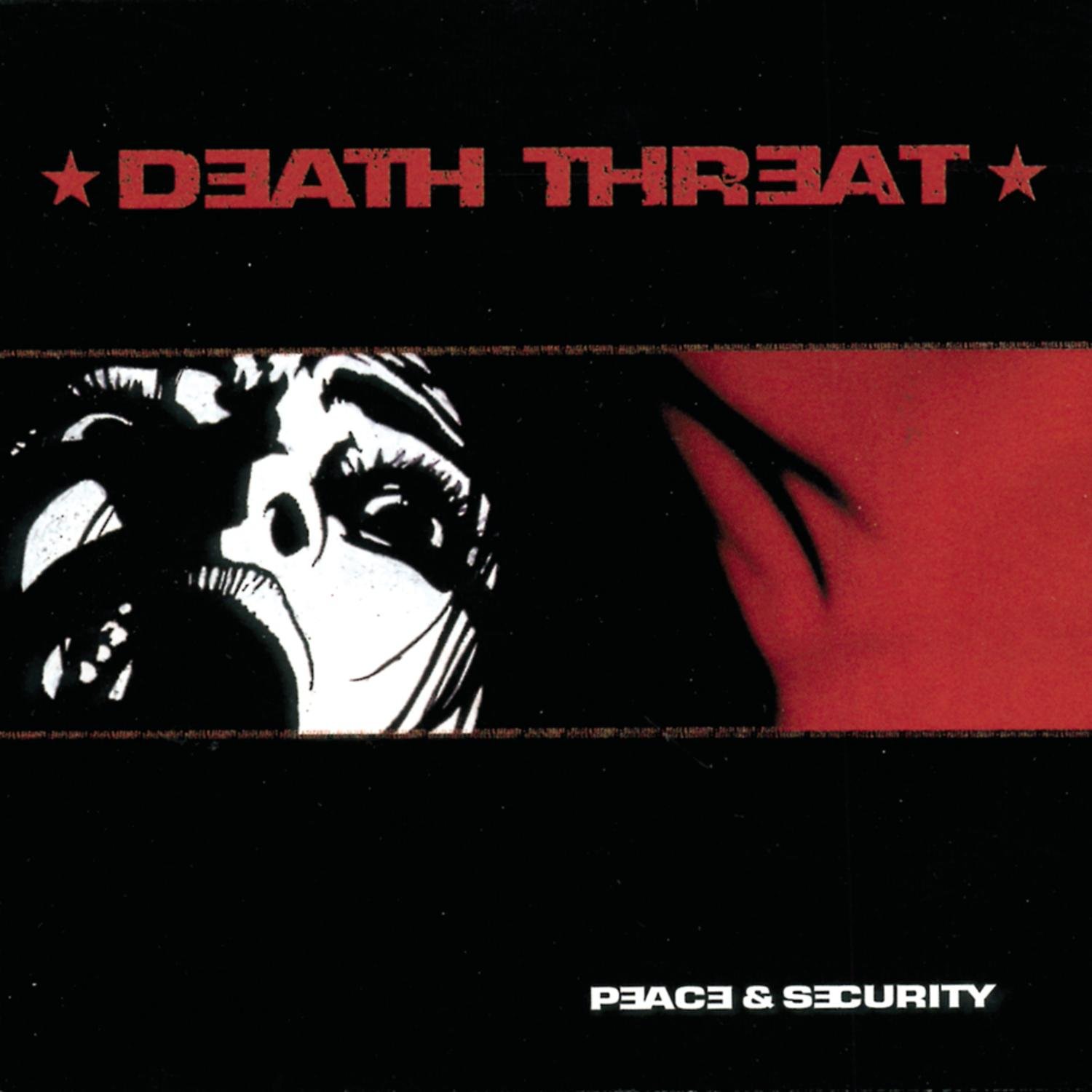
Since I have you here, I'd love to touch on some of the other Death Threat releases. 2002’s For God & Government album featured a different lineup than the one on Peace & Security. How did that change affect the Death Threat sound and songwriting on that album?
(Aaron): So Steve [Teo] and Bill [Ross] had joined the band in 2000 and toured on Peace & Security, and Wes joined shortly after. It was a brand new start for Death Threat.
Honestly, we knew we would never replicate the sounds that CJ, Boulder, Larry [Dwyer, Jr.], and Pushbutton had created. I was the only remaining piece of that time. These guys grew up on Death Threat and had been playing the old stuff long enough so our sound came through with a little bit of a new twist.
Most people really liked 'For God & Government' but there were those who said we changed our sound, lost our edge, or weren’t “tough” anymore. That didn’t phase us. I loved playing, writing, and touring with these guys and was very happy with the new songs. Big shoes to fill for young CTHC kids, but they pulled it off.
Describe Death Threats shows in the New England region around that time. What were some of the bands you were playing with a lot back then?
We were playing with Madball, Blood for Blood, American Nightmare, Hope Conspiracy, Death Before Dishonor, Agnostic Front, Striking Distance, and the list goes on. That’s just the early 2000, late '90s is a whole other story.
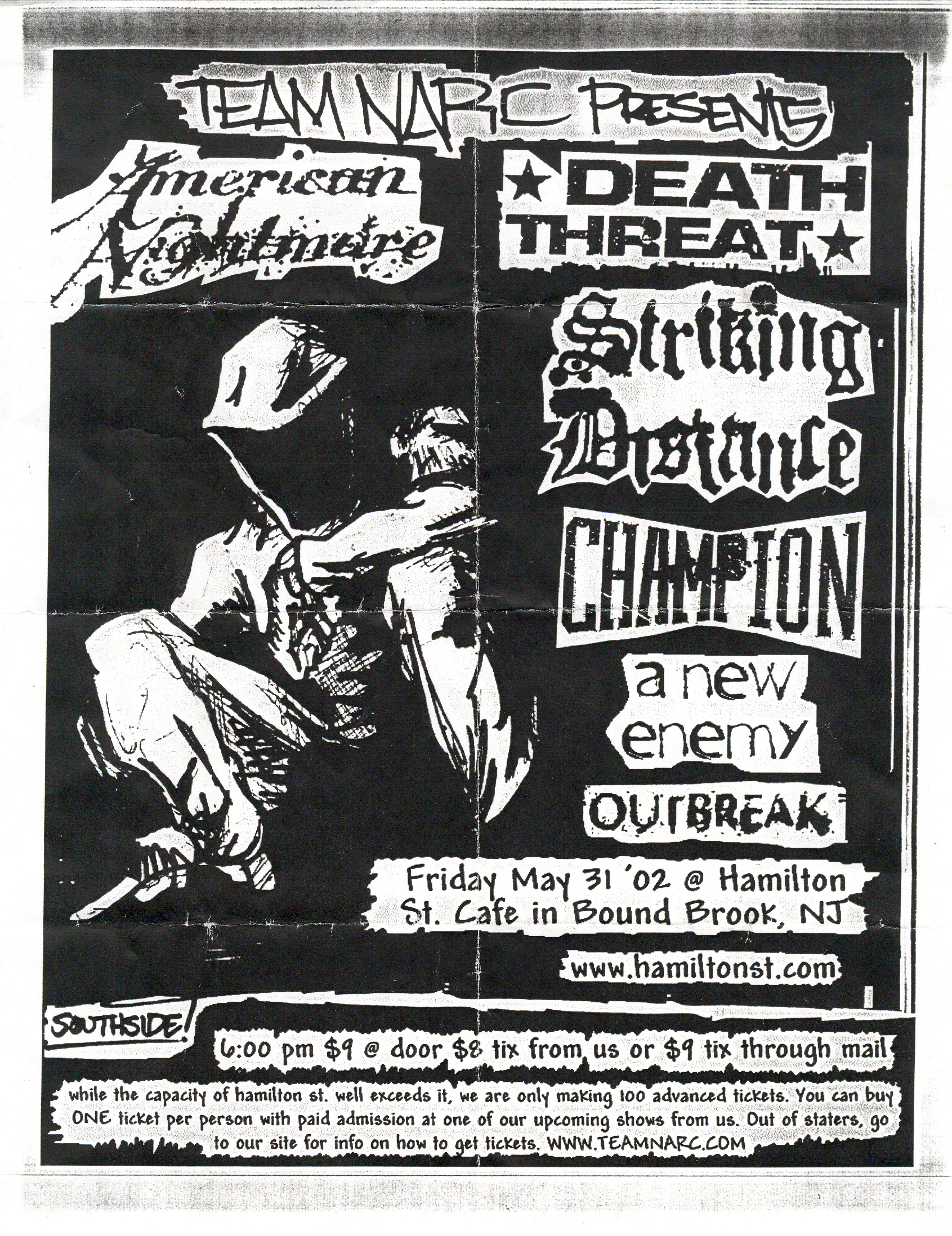
How did the split with Over My Dead Body come together? Was it a Bridge Nine project, or did you guys have a connection with Over My Dead Body?
(Aaron): Bridge Nine put that together. We played a bunch of shows with them previously and had become friends. It was a natural fit.
Why did you choose to cover Chain of Strength's "Best of Times" on that record?
(Aaron): We covered Chain as a nod to our new Cali straight edge fans and honestly, the Chain of Strength 7” is still one of my faves. And let me be clear, I have never been straight edge but some of that '80s Youth Crew really moved me.
My first show was at the infamous Anthrax club in Connecticut with Chain of Strength, Turning Point, and Up Front. I used to practice stage diving in my bedroom from my dresser to my bed to that 7” (laughs).
For the Nowhere Fast sessions, you worked with Dean Baltulonis behind the boards. What was that experience like? He’s worked on some truly excellent hardcore records throughout the years.
(Aaron): Working with Dean was great. It was nice to be in the studio with a “ hardcore kid,” someone from our world and an ear for it. I bought my first skateboard from Dean's mom at Rt. 5 BMX in 85’. It was a Kryptonite Bomb King.
Dean was also in a band called Freedom of Choice from Connecticut and hung out with my cousin Noelle and her friends, so we had a lot of connections. The next record we recorded with him was the Rude Awakening split. I did my vocals in Brooklyn remotely so I didn’t have the chance to work with him but the guys did and had a blast at his new studio in New Hampshire.
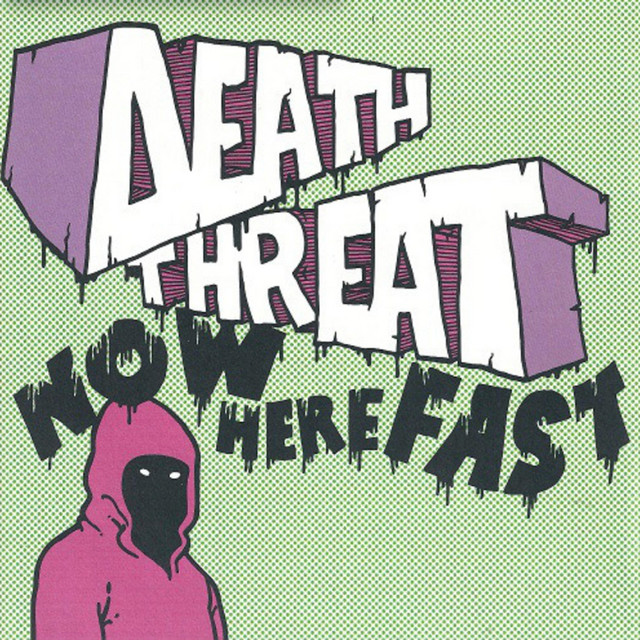
The Lost at Sea EP you released on Reaper Records is a personal favorite for me.
(Aaron): Lost at Sea was literal in every sense. I had survived my first real run in with addiction and had lost it all and honestly just wanted to fucking die. I got back on my feet with the help of my family and friends and of course hardcore would be my saving grace, again.
I had done a lot of damage and hurt some people and hated myself for it. Patrick Kitzel from Reaper is an old friend of mine and he reached out about doing a 7”.
I actually didn’t want to record anything after Nowhere Fast but when the time came it felt right and much needed. The people who love Lost at Sea really love it. I guess that 7” and the Rude Awakening split are my redemption songs.
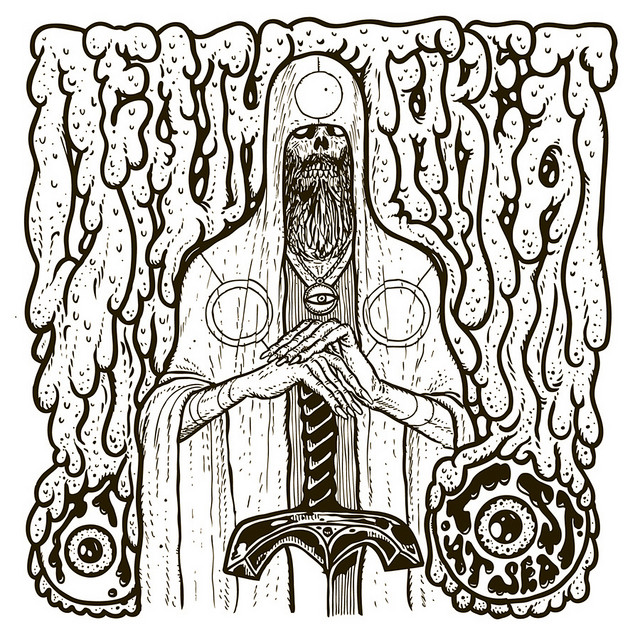
Yes, that brings us to the aforementioned split you did with Rude Awakening in 2013 that Triple B Records released. How did that one come together?
(Aaron): Sam [Yarmuth] hit up our drummer Jamie Hoffa Riddle about it and we were game. It had been a while since we recorded. Rude Awakening were our boys and BBB was a fresh new label seemed like a no-brainer to me.
We recorded separately because I was in Brooklyn so it felt a little strange but it came together. I love those songs but it seems like most kids want the early stuff more.
What’s the status of Death Threat in 2024? Outside of playing shows, can we expect new material from the band any time soon now that Jamie is back in the fold?
(Aaron): We had a plan to do a split 7” with OG lineup and current line up. Doing one song and a cover, but I'm not sure it will happen. Life has gotten busy with my pizzeria but it ain’t over til it’s over, so we shall see. Pretty sure I could spit out some verses with the state of the world right now.
(Jamie): We have definitely discussed a few ideas and ways to get some new music out. Pretty shortly after I rejoined Death Threat, we decided to have a slower year this year as we all have families, businesses, etc. But we have a lot of stuff planned for later this year and into 2025 that we are psyched to share with everybody.
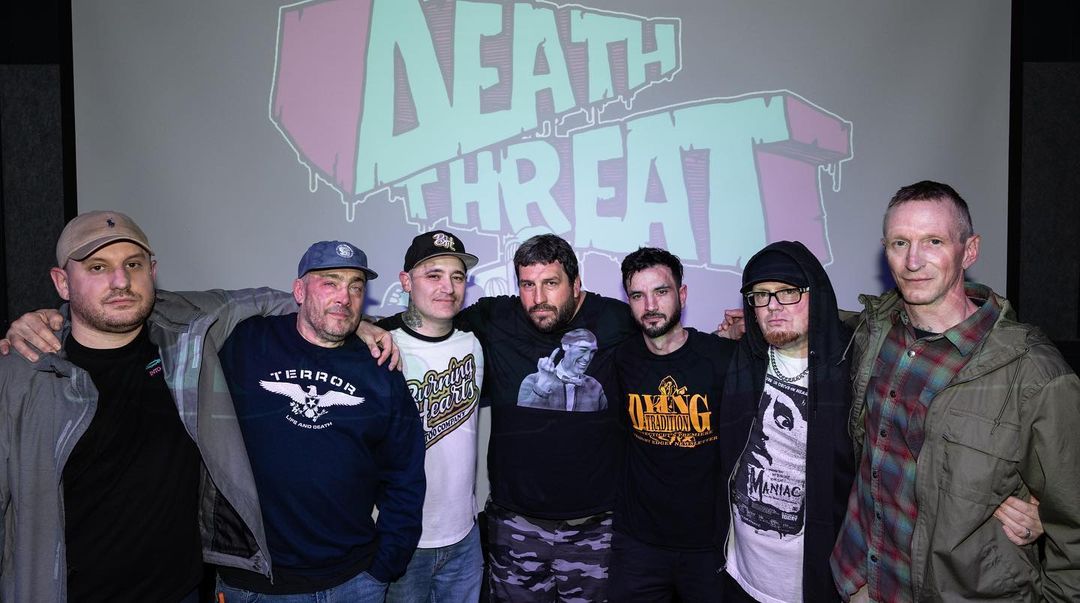
Jamie, as someone with expert knowledge on the subject, what is the best pizzeria in Connecticut at the moment?
(Jamie): Frank Pepe’s is my favorite pizzeria since I was a kid and it's also Connecticut's oldest pizza spot. My last meal would be a sausage pepperoni pie. That being said, Little City Pizza Co. in Avon is hands down the best pizza in Connecticut, in my humble opinion.
Of course, the owner is one of my best friends and an old hardcore kid. CTHC SDS 4 Life.
***
Death Threat on social media: Instagram
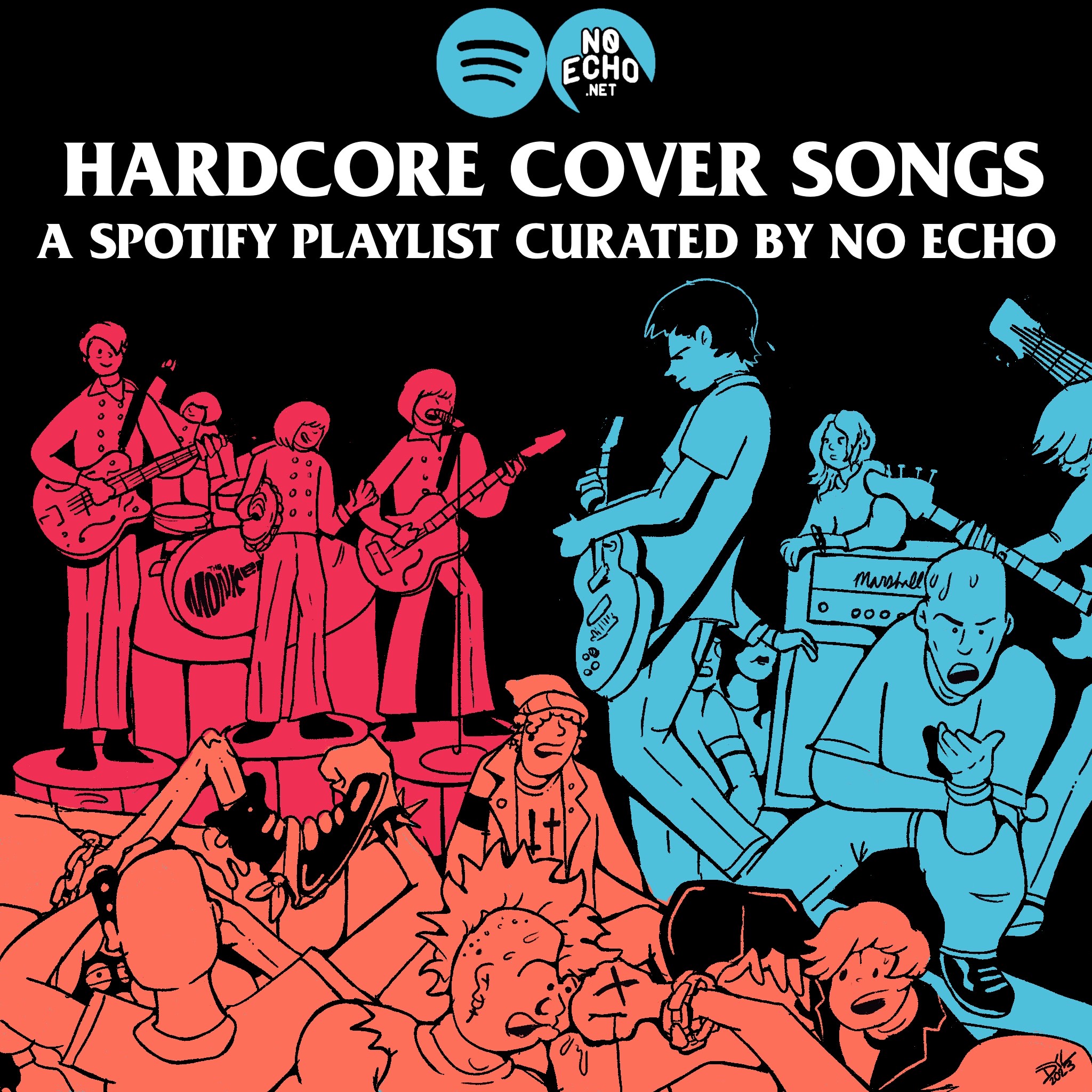
Tagged: 2000s hardcore week, death threat

